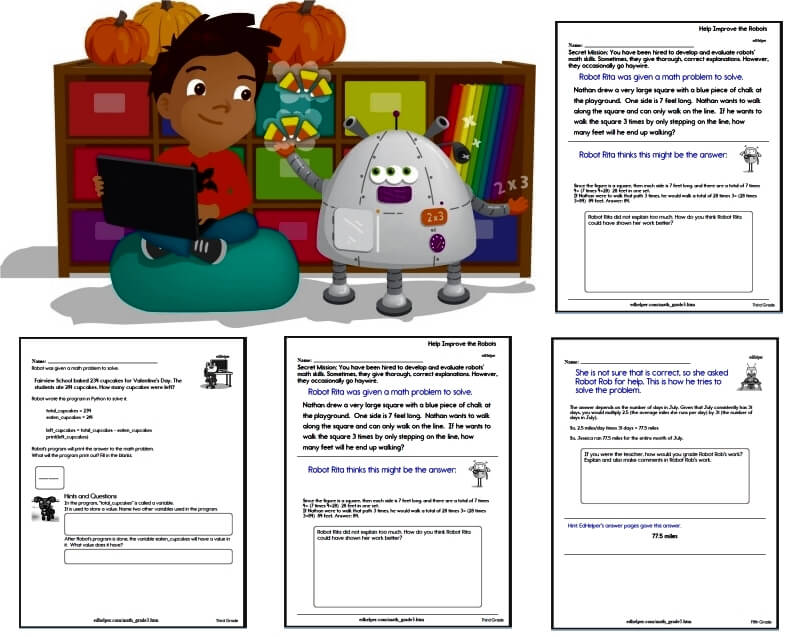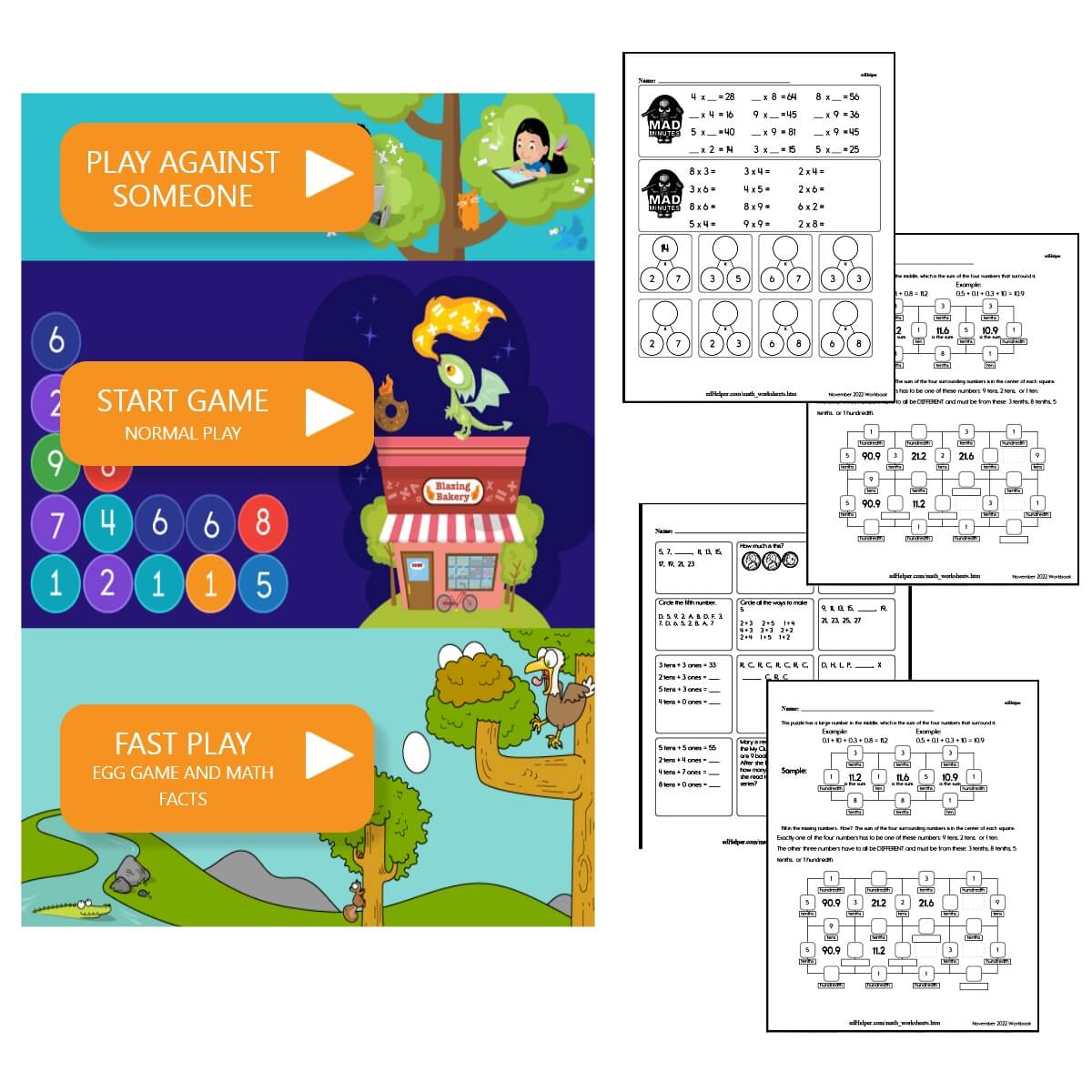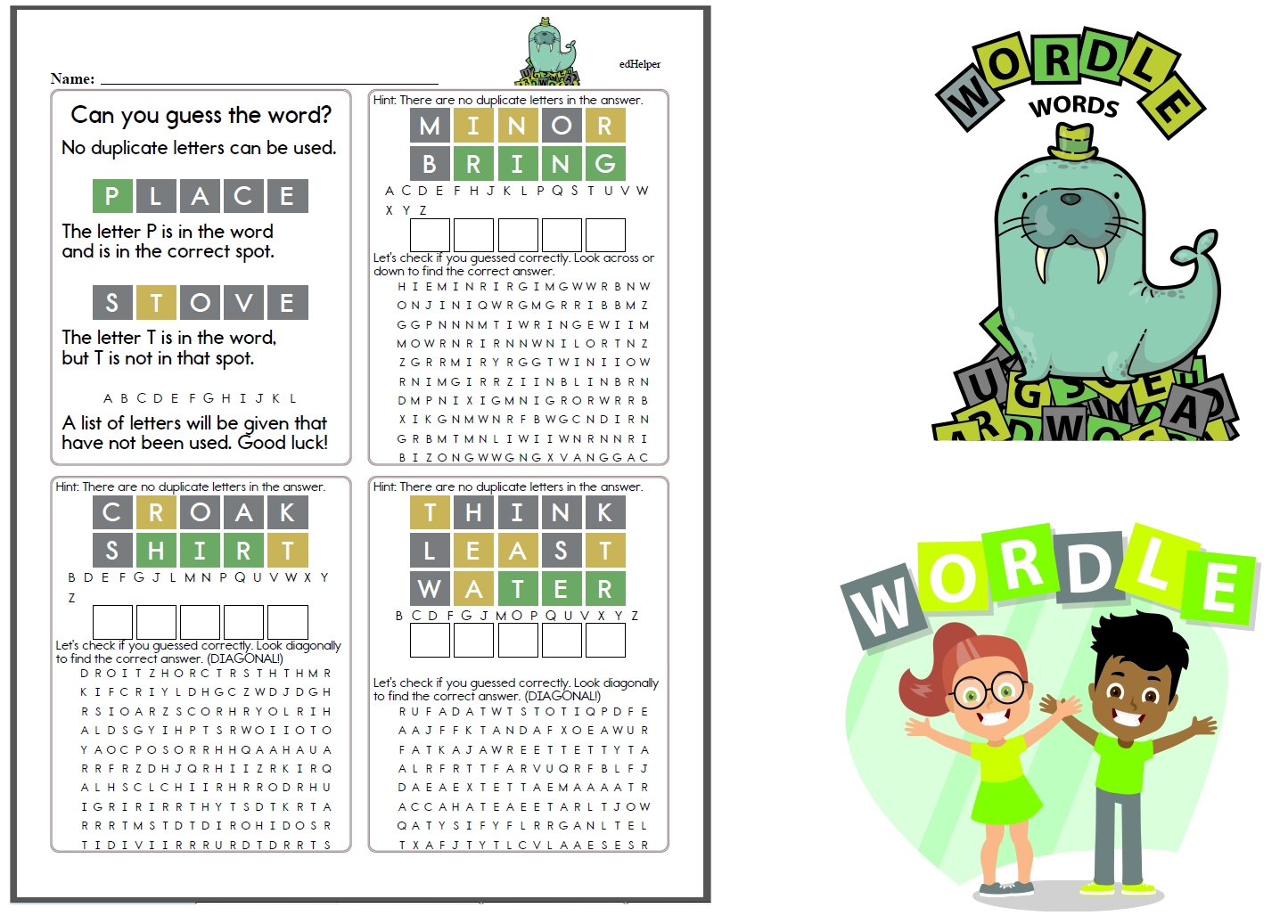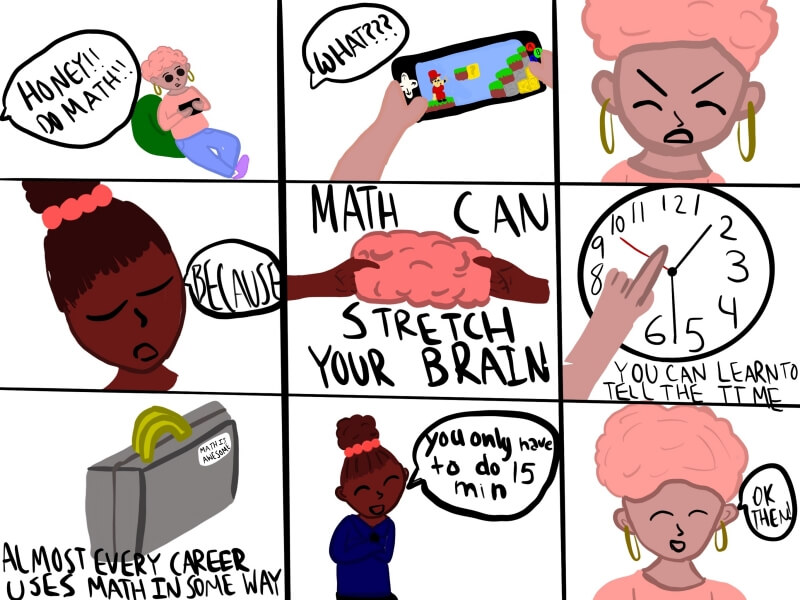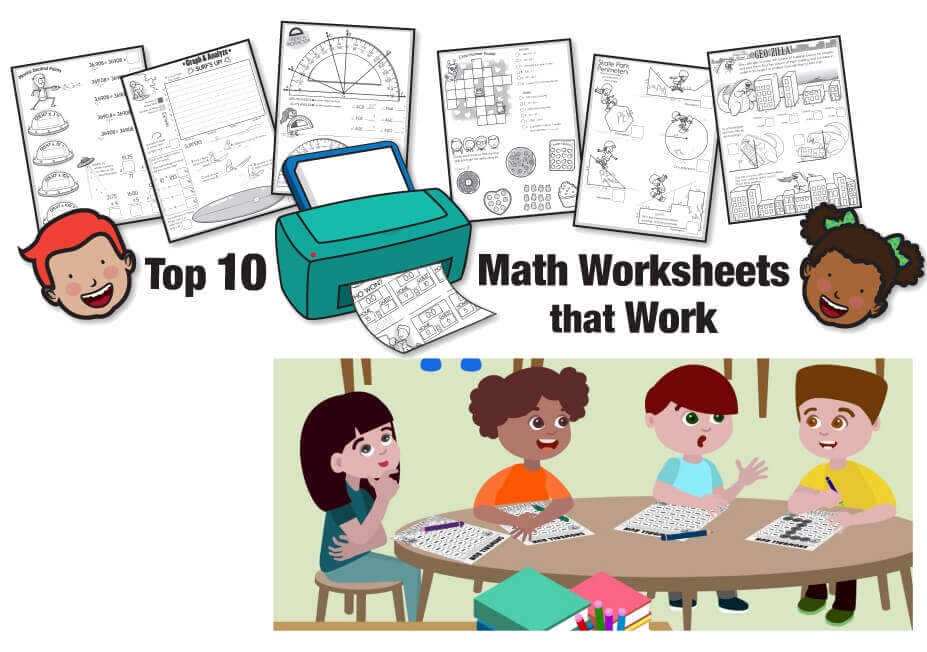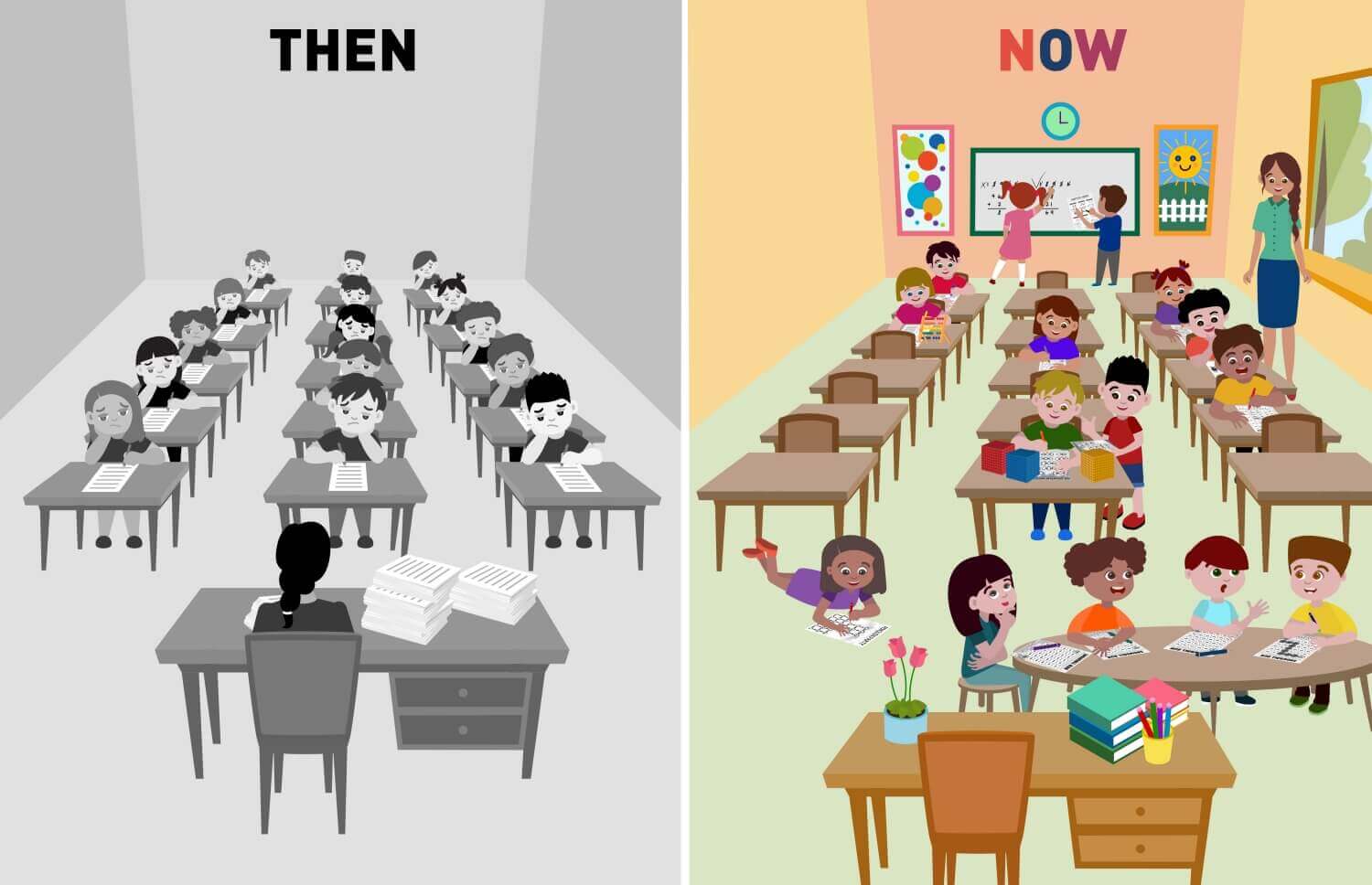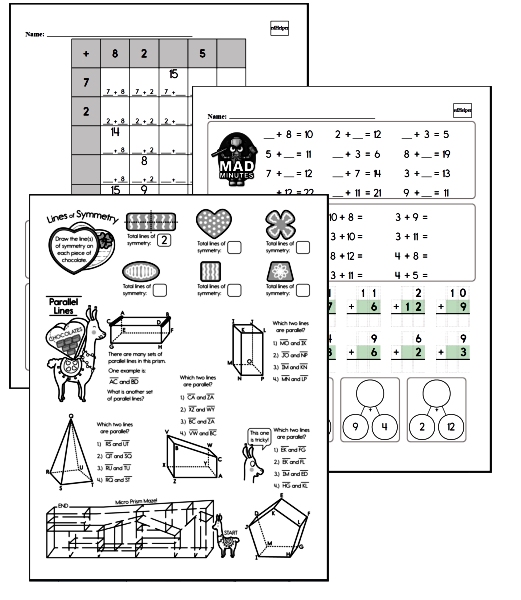Tips for Developing Student Mindset Ahead of a Math Assessment
By: edHelper Staff
Updated: Jun 9, 2023

There are many concrete ways for your students to practice ahead of a math test. Working through math problems on paper is important, but that's not all there is to prepping for a math assessment.
Stress has the power to negatively affect test scores. If students feel too much pressure, if they don't feel prepared, or if they are worried about getting a low score, their thinking will be clouded, and they will find it more difficult to work through problems that they otherwise might be able to solve.
That's why it's so important to work on student mindset along with the other practice activities you do in the classroom.
But what does it look like to help your students develop a more positive test-taking mindset?
Here are our top tips for helping your students develop the right mindset ahead of the next math assessment.
Allow Students to Experience the Testing Environment
It's normal for students to be nervous at the beginning of the school year, but as they settle into their new routines, get used to their new classroom, and understand the expectations from their new teacher, they get comfortable enough to concentrate on their work.
All that goes out the window during a math assessment.
Desks are often rearranged, posters are taken down from the wall, and there are new rules on the day of the assessment. It's almost like experiencing the first days of school all over again.
That's why it's so important to give your students the ability to get used to the testing environment. Rearrange desks and redecorate the walls a week or so ahead of the test so students have a chance to get comfortable with the new look and feel of the classroom.
Let them practice the new rules, too. Give them a practice test and correct any behaviors as they're practicing. Give students a chance to ask questions about what taking the test will be like, and they will find it easy to get into the test-taking mindset on exam day.
Practice Test Taking Strategies Together as a Class
Do your students know what to do if they come across a problem on the exam that they can't solve? Do they know what to do if they're starting to feel overwhelmed by all the questions they have to answer, or what they should do if they finish the test early?
Just telling your students what to do isn't enough. What they have been told is easy to forget when they're in the thick of it. If you want your students to remember what to do when the exam is in front of them, you have to practice together ahead of the test.
Whip out a practice test, and display it on the board. Walk through a question together, and ask them which important words they think they should underline, which answers they can eliminate, and a different way they can complete the problem so they can double-check their answer.
Once you've done it together, let them practice their skills independently. Allow them to ask questions and help each other work through tricky problems. When the official exam finally arrives, they will feel confident that they know which strategies to use and when because they have already practiced them.
Read Books That Allow You to Discuss Testing With Your Students
Having a positive mindset isn't just something you can tell your students to have. It's something they have to experience and talk about over and over again.
Reading books with appropriate themes is a great way to bring up and discuss mindset topics with your students ahead of the test.
For example, The Big Test by Julie Danneberg is a great way to have a conversation with your students about learning how to relax, even during an important exam. Beautiful Oops is all about learning that it's okay to make a mistake, while Hooray for Diffendoofer Day by Dr. Suess, Jack Prelutsky, and Lane Smith enables you to support your students' confidence.
A few other examples of books you might want to read with your class ahead of the test include:
- Testing Miss Malarky by Judy Finchler
- Math Curse by Jon Scieszka
- The Girl Who Never Made Mistakes by Mark Pett
- The Most Magnificent Thing by Ashley Spires
Just make sure you leave plenty of time after you're done reading each book to discuss its theme. You might ask the class questions, break them up into smaller groups to work together on an activity, or have students write about a mistake or failure that turned out to be okay.
Visualize Success Through Writing, Drawing, and Coloring
Visualization is a powerful tool. Some studies are revealing that thoughts produce the same mental instructions as actions. Simply by visualizing how they want the test to go, your students can get closer to achieving their goals.
Visualization usually refers to imagining a scenario, like the way a skier mentally practices a slope ahead of a meet or a public speaker envisions giving their speech. But, it can be tough for students to visualize in this way, and it's even more difficult for teachers to measure student success with visualization.
Writing, drawing, and coloring can help.
Let your students brainstorm as a class how they want to feel during the test. Do they want the questions to seem easy? How do they want to feel as they wait for their scores to come back? How is the environment going to look, sound, and feel? Have them close their eyes and imagine themselves knocking the exam out of the park.
Then, support their visualization by having them draw a picture or write a short story about what they imagined. Coloring sheets with messages like "Mistakes help me learn better" and "I can do hard things" can help too.
Then, hang their work on the wall. Take the time to talk with your students about what they've imagined so they can get inspiration from each other.
Praise the Process-Not the Result
What's more important, having students get a good score on the test, or having a class full of students who gave it their all and are motivated to do it again, no matter what score they got?
Supporting your students in developing a growth mindset means being very careful about the message you send, especially in a subject like math that many students find frustrating.
Instead of praising students for getting good scores, focus on praising the process.
Notice when students tackle a hard problem and then give it another try if they get the answer wrong the first time. Acknowledge that math can be hard but that you know they can do it, whether they figure it out now or it clicks for them later.
Consider planning a celebration when the exam is over. Make it about getting through the test and giving it their all instead of getting a certain score. It will motivate them to try hard again next time, even if they didn't do as well as they would have liked.
Talk About What Happens After the Test
Tests, especially official assessments, feel like a big deal. They often are, but they aren't always as big of a deal as the students think.
Be transparent about what the test is for and how their scores are going to be used. Is the test measuring class-wide knowledge so it can be compared to other classes? Are school-wide scores going to be used to make curriculum decisions?
These may sound like abstract concepts, but students are more capable of complex thinking than we often give them credit for. If they understand that the scores are driving decisions about instruction-and they aren't being used to give them a grade or judge them on how smart they are-they will feel less pressure when faced with the test.
There are other questions students want to know the answers to. Will they have a chance to see which questions they got wrong? Can they rework any problems for extra credit? Will their parents, other teachers, or students see their scores?
Answer these questions and any others your students have about what happens after the test. Knowing what to expect during and after the test can reduce anxiety and boost confidence.
Want to learn more tips on how to get your students ready for a math assessment?
Teacher Tactics to Help With a Math Assessment
Preparing Students for a Math Assessment
Math Assessments and Hybrid AI Learning Workbooks and Games




